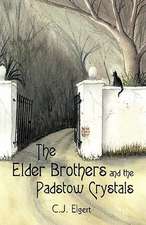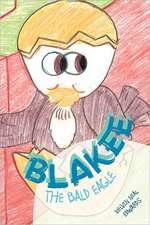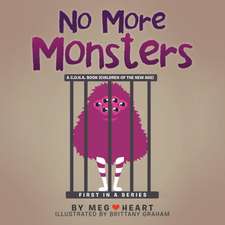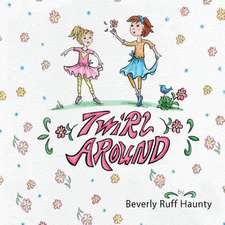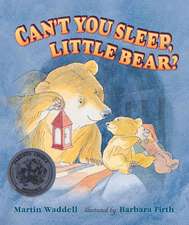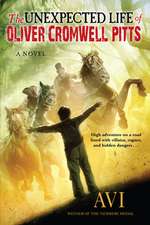What Do Fish Have to Do with Anything?: And Other Stories
Autor Avi Ilustrat de Tracy Mitchellen Limba Engleză Paperback – 31 mar 2004 – vârsta de la 10 ani
Vezi toate premiile Carte premiată
In the overlapping years when childhood and adolescence blend and shift like waves and sand, nothing is certain and everything is changing. In this extraordinary collection of stories, Avi, one of the most innovative authors writing for young people today, charts the turning points in the lives of seven protagonists in their restless middle years. Here you will meet, among others, the subject of the title story, who wonders why he shouldn’t ask questions that have no answers — is it because he might discover the truth? You’ll also encounter a "bad" minister’s son who is dared to be good, and a chilling tale of a girl who is haunted by the ghosts of her cats. Always with a surprise built in, an angle unseen, these are stories that step just beyond the edge of the everyday.
Preț: 51.92 lei
Nou
Puncte Express: 78
Preț estimativ în valută:
9.93€ • 10.40$ • 8.22£
9.93€ • 10.40$ • 8.22£
Carte disponibilă
Livrare economică 15-29 martie
Preluare comenzi: 021 569.72.76
Specificații
ISBN-13: 9780763623197
ISBN-10: 0763623199
Pagini: 196
Ilustrații: 1-COLOR
Dimensiuni: 133 x 192 x 11 mm
Greutate: 0.2 kg
Ediția:Pbk.
Editura: Candlewick Press (MA)
ISBN-10: 0763623199
Pagini: 196
Ilustrații: 1-COLOR
Dimensiuni: 133 x 192 x 11 mm
Greutate: 0.2 kg
Ediția:Pbk.
Editura: Candlewick Press (MA)
Notă biografică
Avi is widely recognized as one of the most talented and inventive authors for young readers today. He has received the BOSTON GLOBE-HORN BOOK Award, the Scott O’Dell Award, the Christopher Award, a Newbery Honor, and the Newbery Medal. Avi says that writing a short story "is like trying to light your way through a dark cave with a tiny birthday candle. The flame may be small, but in the darkness, if the writer has done the job, how bright the light!"
Extras
Every day at three o'clock Mrs. Markham waited for her son, Willie, to come out of school. They walked home together. If asked why she did it, Mrs. Markham would say, "Parents need to watch their children."
As they left the schoolyard, Mrs. Markham inevitably asked, "How was school?"
Willie would begin to talk, then stop. He was never sure his mother was listening. She seemed preoccupied with her own thoughts. She had been like that ever since his dad had abandoned them six months ago. No one knew where he'd gone. Willie had the feeling that his mother was lost too. It made him feel lonely.
One Monday afternoon, as they approached the apartment building where they lived, she suddenly tugged at him. "Don't look that way," she said.
"Where?"
"At that man over there."
Willie stole a look over his shoulder. A man, whom Willie had never seen before, was sitting on a red plastic milk crate near the curb. His matted, streaky gray hair hung like a ragged curtain over his dirty face. His shoes were torn. Rough hands lay upon his knees. One hand was palm up. No one seemed to pay him any mind. Willie was certain he had never seen a man so utterly alone. It was as if he were some spat-out piece of chewing gum on the pavement.
"What's the matter with him?" Willie asked his mother in a hushed voice.
Keeping her eyes straight ahead, Mrs. Markham said, "He's sick." She pulled Willie around. "Don't stare. It's rude."
"What kind of sick?"
As Mrs. Markham searched for an answer, she began to walk faster. "He's unhappy," she said.
"What's he doing?"
"Come on, Willie, you know perfectly well. He's begging."
"Do you think anyone gave him anything?"
"I don't know. Now, come on, don't look."
"Why don't you give him something?"
"We have nothing to spare."
When they got home, Mrs. Markham removed a white cardboard box from the refrigerator. It contained pound cake. Using her thumb as a measure, she carefully cut a half-inch piece of cake and gave it to Willie on a clean plate. The plate lay on a plastic mat decorated with images of roses with diamondlike dewdrops. She also gave him a glass of milk and a folded napkin. She moved slowly.
Willie said, "Can I have a bigger piece of cake?"
Mrs. Markham picked up the cake box and ran a manicured pink fingernail along the nutrition information panel. "A half-inch piece is a portion, and a portion contains the following health requirements. Do you want to hear them?"
"No."
"It's on the box, so you can believe what it says. Scientists study people, then write these things. If you're smart enough you could become a scientist. Like this." Mrs. Markham tapped the box. "It pays well."
Willie ate his cake and drank the milk. When he was done he took care to wipe the crumbs off his face as well as to blot his milk mustache with the napkin. His mother liked him to be neat.
His mother said, "Now go on and do your homework. Carefully. You're in sixth grade. It's important."
Willie gathered up his books that lay on the empty third chair. At the kitchen entrance he paused and looked back at his mother. She was staring sadly at the cake box, but he didn't think she was seeing it. Her unhappiness made him think of the man on the street.
"What KIND of unhappiness do you think he has?" he suddenly asked.
"Who's that?"
"That man."
Mrs. Markham looked puzzled.
"The begging man. The one on the street."
"Oh, could be anything," his mother said, vaguely. "A person can be unhappy for many reasons." She turned to stare out the window as if an answer might be there.
"Is unhappiness a sickness you can cure?"
"I wish you wouldn't ask such questions."
"Why?"
After a moment she said, "Questions that have no answers shouldn't be asked."
"Can I go out?"
"Homework first."
Willie turned to go again.
"Money," Mrs. Markham suddenly said. "Money will cure a lot of unhappiness. That's why that man was begging. A salesman once said to me, 'Maybe you can't buy happiness, but you can rent a lot of it.' You should remember that."
"How much money do we have?"
"Not enough."
"Is that why you're unhappy?"
"Willie, do your homework."
Willie started to ask another question, but decided he would not get an answer. He left the kitchen.
As they left the schoolyard, Mrs. Markham inevitably asked, "How was school?"
Willie would begin to talk, then stop. He was never sure his mother was listening. She seemed preoccupied with her own thoughts. She had been like that ever since his dad had abandoned them six months ago. No one knew where he'd gone. Willie had the feeling that his mother was lost too. It made him feel lonely.
One Monday afternoon, as they approached the apartment building where they lived, she suddenly tugged at him. "Don't look that way," she said.
"Where?"
"At that man over there."
Willie stole a look over his shoulder. A man, whom Willie had never seen before, was sitting on a red plastic milk crate near the curb. His matted, streaky gray hair hung like a ragged curtain over his dirty face. His shoes were torn. Rough hands lay upon his knees. One hand was palm up. No one seemed to pay him any mind. Willie was certain he had never seen a man so utterly alone. It was as if he were some spat-out piece of chewing gum on the pavement.
"What's the matter with him?" Willie asked his mother in a hushed voice.
Keeping her eyes straight ahead, Mrs. Markham said, "He's sick." She pulled Willie around. "Don't stare. It's rude."
"What kind of sick?"
As Mrs. Markham searched for an answer, she began to walk faster. "He's unhappy," she said.
"What's he doing?"
"Come on, Willie, you know perfectly well. He's begging."
"Do you think anyone gave him anything?"
"I don't know. Now, come on, don't look."
"Why don't you give him something?"
"We have nothing to spare."
When they got home, Mrs. Markham removed a white cardboard box from the refrigerator. It contained pound cake. Using her thumb as a measure, she carefully cut a half-inch piece of cake and gave it to Willie on a clean plate. The plate lay on a plastic mat decorated with images of roses with diamondlike dewdrops. She also gave him a glass of milk and a folded napkin. She moved slowly.
Willie said, "Can I have a bigger piece of cake?"
Mrs. Markham picked up the cake box and ran a manicured pink fingernail along the nutrition information panel. "A half-inch piece is a portion, and a portion contains the following health requirements. Do you want to hear them?"
"No."
"It's on the box, so you can believe what it says. Scientists study people, then write these things. If you're smart enough you could become a scientist. Like this." Mrs. Markham tapped the box. "It pays well."
Willie ate his cake and drank the milk. When he was done he took care to wipe the crumbs off his face as well as to blot his milk mustache with the napkin. His mother liked him to be neat.
His mother said, "Now go on and do your homework. Carefully. You're in sixth grade. It's important."
Willie gathered up his books that lay on the empty third chair. At the kitchen entrance he paused and looked back at his mother. She was staring sadly at the cake box, but he didn't think she was seeing it. Her unhappiness made him think of the man on the street.
"What KIND of unhappiness do you think he has?" he suddenly asked.
"Who's that?"
"That man."
Mrs. Markham looked puzzled.
"The begging man. The one on the street."
"Oh, could be anything," his mother said, vaguely. "A person can be unhappy for many reasons." She turned to stare out the window as if an answer might be there.
"Is unhappiness a sickness you can cure?"
"I wish you wouldn't ask such questions."
"Why?"
After a moment she said, "Questions that have no answers shouldn't be asked."
"Can I go out?"
"Homework first."
Willie turned to go again.
"Money," Mrs. Markham suddenly said. "Money will cure a lot of unhappiness. That's why that man was begging. A salesman once said to me, 'Maybe you can't buy happiness, but you can rent a lot of it.' You should remember that."
"How much money do we have?"
"Not enough."
"Is that why you're unhappy?"
"Willie, do your homework."
Willie started to ask another question, but decided he would not get an answer. He left the kitchen.
Descriere
In this extraordinary collection of stories, the Newbery Award-winning author charts the turning points in the lives of seven protagonists in their restless middle years.
Premii
- Parents Choice Award (Fall) (1998-2007) Winner, 1998






